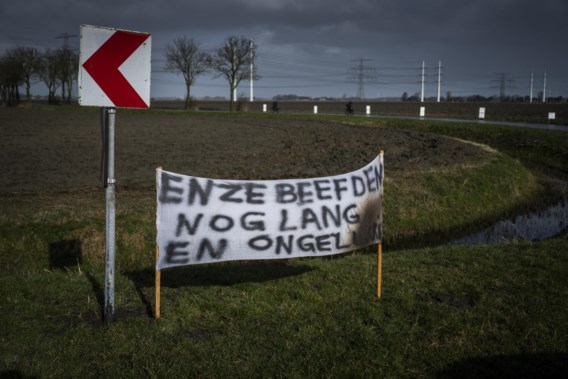Groningen Residents Breathe a Sigh of Relief as Dutch Gas Extraction Ends in October
On October 1, the Netherlands will definitively turn off the gas tap, bringing an end to decades of gas extraction in Groningen. The news has been met with a mix of anticipation and skepticism by the residents of Groningen, who have long suffered the consequences of gas production in the region.
Gas extraction in Groningen has made the Netherlands rich, but it has come at a high cost for the people of Groningen. Thousands of houses in the region have been damaged or subsided due to the earthquakes caused by gas extraction. As a result, pressure has been mounting to stop gas production and address the damages.
In 2016, the government announced a plan to disconnect the country from gas, with the promise that the gas tap would be turned off by mid-2022. However, bad news came at the beginning of 2022 when it was revealed that the gas tap could not be closed. More gas had to be pumped up due to two serious kinks in the cable. The Netherlands had to import more foreign gas, which required the construction of a nitrogen plant that was delayed.
Additionally, the Netherlands had a long-term gas contract with Germany, and the switch to other gas sources did not go as expected. The anger of the Groningen people grew as the government failed to fulfill promises of compensation for damages. A parliamentary committee of inquiry published a damning report on gas extraction, highlighting the systematic neglect of the security interests of Groningen residents by successive governments and oil and gas companies.
Finally, on Friday, the State Secretary for Mining, Hans Vijlbrief, announced that gas extraction in Groningen will stop on October 1. While this news brings some relief, the Groningen people remain suspicious. The gas wells will remain open for another year in case of a very cold winter, leaving room for uncertainty.
The gas extraction industry has brought about 400 billion euros into the treasury over the past 60 years, making the Netherlands prosperous. However, in the coming years, gas extraction will cost the country money. The government and the Nationale Aardolie Maatschappij (NAM), responsible for operation, must come up with compensation for the damages caused. Following the parliamentary report, The Hague has allocated an extra 13.5 billion euros to Groningen, in addition to the previously released 8.5 billion euros.
The people of Groningen remain skeptical and will only believe in the compensation when they see the money in their accounts. In recent years, NAM has often found arguments to delay or deny damage claims. Despite the challenges ahead, the end of gas extraction in Groningen marks a significant milestone for the region and its residents.
What concerns do the residents of Groningen have regarding the government’s decision to halt gas production and its ability to address existing damages caused by extraction
Aled that gas extraction in Groningen would cease already in October 2022, several years ahead of schedule.
For the residents of Groningen, the announcement was met with relief. The constant tremors caused by gas extraction have taken a toll on their lives and livelihoods. Many have lived in fear of their homes collapsing or being forced to relocate due to the damages. The end of gas extraction signifies an end to this constant threat and brings a sense of security and peace of mind.
Nevertheless, skepticism lingers among the residents. They have witnessed broken promises and delays in the past when it comes to addressing the damages caused by gas extraction. Some worry that the government’s decision to halt gas production ahead of schedule may not be accompanied by adequate measures to address the existing damages.
The government has vowed to compensate affected residents and provide resources for repairs and reinforcement of damaged homes. However, it remains to be seen how effectively these promises will be implemented. The people of Groningen have learned from experience to approach government assurances with caution.
Beyond the immediate impact on the residents of Groningen, the end of gas extraction in the region also marks a significant shift for the Netherlands as a whole. The country has long relied on gas production for its energy needs and economic growth. The decision to disconnect from gas represents a move towards more sustainable energy sources and a commitment to reducing carbon emissions.
For the residents of Groningen, the end of gas extraction brings both relief and a sense of hope for a better future. They have endured the consequences of gas production for far too long and now eagerly await the implementation of measures to address the damages they have suffered. Only time will tell if their long-awaited sigh of relief will be fully realized.



It’s about time that the Netherlands finally takes action to turn off the tap on gas extraction in Groningen. However, the delayed compensation for damages only adds insult to injury for those who’ve been affected. Let’s hope the government prioritizes the well-being of its citizens and acts swiftly to provide them with the support they deserve.
This article sheds light on the pressing issue of gas extraction in Groningen, highlighting the Netherlands’ urgent plan to halt extraction and the troubling delays in compensating damages incurred. It serves as a stark reminder of the importance of swift action and rightful compensation in safeguarding the well-being of affected communities.